What Should You Do in a Chemical Emergency?
Did you know chemical emergencies happen often in the United States? Chemical emergencies can happen in several different ways, whether it’s done by accident or intentionally released in such a way as to harm others. Examples of this include a chemical spill or explosion in a warehouse, a train derailment, and even the case of a terrorist attack.
Although these types of disastrous scenarios are more unlikely to happen than other emergencies, there’s always that slim possibility. In the last month, there have been two attacks on power substations in the U.S. Although not chemical in nature, who would have thought we’d be dealing with things like that so close to home?
Do you happen to know what the proper steps are to take care of yourself and your loved ones following a chemical emergency? Please check with your local city and county to see what they have available or what plans they have to protect your community.
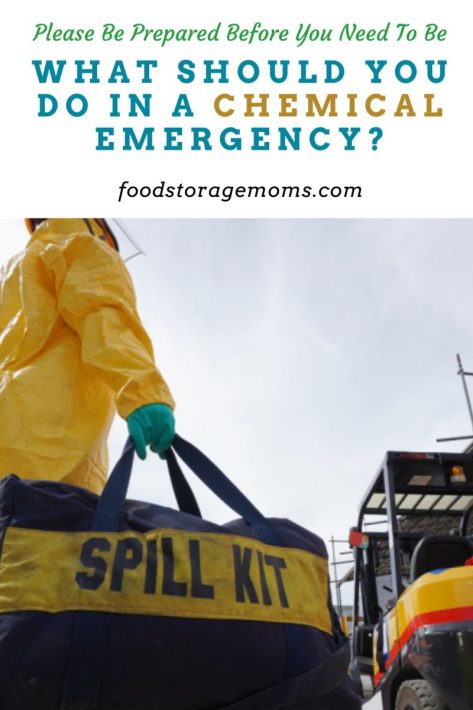
Understanding a Chemical Emergency
A chemical emergency is not something that anyone should take lightly because it can be extremely dangerous and cause serious health issues very quickly. Some may even be life-threatening. If your answer was no to the question I asked earlier, I’d encourage you to stick around.
Keep reading to find out what the proper steps are that you should take if you’re ever faced with a chemical emergency. Remember that prevention is always the best route to take if you have any control over the situation at all!
Get Away
Did you know that emergency preparedness also includes chemical emergencies? Instead of worrying about what type of chemical you’ve come in contact with and determining how dangerous that it might be, the most essential thing that you can do at the moment of contact is to get far away from the area where the contamination has taken place and find a safe place as a first step.
You certainly don’t want to continue breathing in the chemical if it has a chance to be airborne. If the incident took place in the case of an industrial accident inside the building that you’re currently in, get out quickly and try to get where there’s fresh air.
If possible, move to an uphill location if you’re able to because a lot of chemicals are heavier than the air and are known to stay closer to the ground. As you get away, try not to touch anything that may have chemicals on it.
Get the Chemical Off of Skin and Clothes
If your body has been exposed to any type of dangerous chemical, even in small amounts, whether it’s been splashed on your skin or in your eyes, you need to get it cleaned off as quickly as possible. Ideally, that would be within a few minutes of when the incident occurred. Strip off all of your clothes and if available, take a shower and scrub well with soap and hot water. It may not seem like much, but this can help prevent long-term negative health effects or disabilities.
Can’t Get Undressed?
Sometimes a chemical emergency can happen while you’re at work or in public and taking your clothes off isn’t an immediate solution. If you’re unable to get undressed, the very least you should do until you’re able to take a shower is use a moist wipe or cloth and blot your skin, face, and hands with it.
Notice how I said blot and not rub your skin while removing the chemical. Always seek immediate medical attention!
I will say, if there is a chance for severe burns or other effects from contact with the chemical, it could be you strongly consider taking those close off anyway. Being temporarily embarrassed is better than suffering the physical and mental consequences of chemical contact and related effects.
Chemical(s) in Your Eyes?
Should a chemical come into contact with your eyes or you’re experiencing a burning sensation in them, you need to flush your eyes out with a clean solution immediately. Spend about 10 to 15 minutes rinsing them out with bottled water, a hose, or running water from a sink.
Don’t use eyedrops as a remedy initially since they don’t provide enough quantity of liquid and you do need larger quantities! Seek medical help ASAP!
It is always a prudent idea to use some type of eye protection when working around machinery and sources of chemicals. It’s even a good idea to wear eye protection when spraying or using a spreader to apply fertilizer in your yard. Don’t take shortcuts when working around chemicals, and don’t allow delays if you need medical attention.
Accidentally Swallowed a Chemical?
If you’ve accidentally swallowed a chemical, whether it was done by eating or drinking something, don’t make these common mistakes. While you may think that drinking plenty of fluid or trying to make yourself throw up is the best thing that you could do, you’d be wrong! There could be more risks involved in doing so.
For one, the poison might go down the wrong way and end up in your lungs. The chemical could also damage body tissue as it passes that tissue a second time on its way out. When you throw up there are times that the debris ends up in your nose and sinuses, making other treatments more difficult and dangerous. Instead of doing this, get help fast, which brings me to my next point.
Get Help in a Chemical Emergency
After you’ve gotten away from the situation and safely decontaminated, now it’s time to get help. You can do so by calling 911 or the Poison Control Center at 800-222-1222. If you’ve been directly affected by a chemical emergency, don’t waste any time and head to the nearest hospital in your area to seek medical attention without the remedial steps.
How to Properly Dispose of Items that Have Been Contaminated
When clothing or other belongings in your home or work have come into contact with a dangerous chemical substance, you’ll need to follow the disposal steps needed so that they no longer are a potential threat to anyone. Make sure that you use gloves and place those items in a plastic bag or container that can be sealed completely.
Also, make sure that you don’t put anything that’s contaminated in with your regular trash unless allowed to do so by your municipality. That way there’s no chance that someone else might accidentally touch what you’ve thrown out. If you don’t have any gloves for the job, you can use plastic bags to cover your hands.
If you work around chemicals as part of your work, hobbies, or in the course of daily activities like yardwork, you should do some research and see what’s allowed in your area regarding the disposal of hazardous waste items.
You should also have a disaster supplies kit available so you can take action quickly. A key item for the kit when considering bare essentials is a saline solution to flush your eye(s). You should also have items to treat minor burns.
I’d also suggest you have some plastic sheeting available to cover any area that’s been contaminated until it can be properly treated by professionals. If it’s a large-scale contamination like significant oil spills, try to safely contain the spill if possible by building a barrier using soil. That may not be feasible, so use your own good judgment.
Small spills could be initially cleaned up using rags that can be properly disposed of.
If you have any questions, the CDC (an official government organization) can help you with any questions you may have!
Have You Not Been Exposed?
Should the chemical emergency happen outdoors or in a building nearby and you haven’t been exposed to anything, it’s best for you to stay indoors. Close and seal off all of your windows and doors and make sure that your family and pets stay inside until the local authorities have given the all-clear that it’s safe for you to leave your home again.
Get to your safe room and turn off any fans, heaters, or air conditioner units so you don’t draw any airborne contaminants and pass them throughout your home. You should also consider closing any air vents and possibly covering them with duct tape.
It’s better to be safe than sorry, so choosing to shelter in place might be your best decision. Life-threatening emergencies happen every day from chemical emergencies, make sure you have the right first aid on hand! Uncommon First Aid Items We Should All Have
If you’re in your vehicle at the time, and the chemicals are outdoors, make sure you roll up your car windows. Chemical exposure is a real thing and you have to be quick in responding, no matter where you are located!
Last-Minute Tips for Chemical Emergencies
While there are many steps you can take to ensure your safety following a chemical emergency, there are some things you should keep in mind. For example, if you’re feeling any symptoms that might be a warning signal that you’ve been affected by a dangerous chemical, such as blurry vision or vomiting and dizziness, make sure that you seek medical attention right away.
Meanwhile, if you know anyone who may have been exposed to the chemical, make sure to stay with them until help arrives. And finally, make sure that your home is equipped with proper equipment in case of an emergency like this. Things like fire extinguishers and carbon monoxide detectors could potentially save lives during a situation like this one.
You should always keep household chemicals under lock and key so young children can’t gain access to them. Also, make sure you have updated evacuation plans in place! People’s health is important and a major chemical emergency can happen at any time, these last-minute tips can help in case of an emergency.
Final Word
These are many of the proper steps that you need to take for yourself and your family if you’re ever faced with a chemical emergency. There may be others that are appropriate, depending on the location, severity, and type of chemical(s) involved. By following them, you’ll greatly reduce your chances of having long-term health issues.
They may even help save your life! Can you think of any other tips that would be helpful following a chemical emergency that you’d be willing to mention? I’d love to hear from you! May God Bless this world, Linda
Copyright Images: Chemical Spill AdobeStock_435735967 By Tanakorn

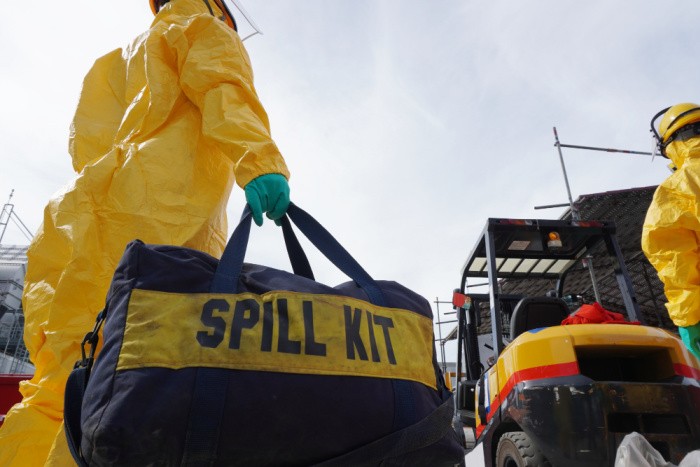

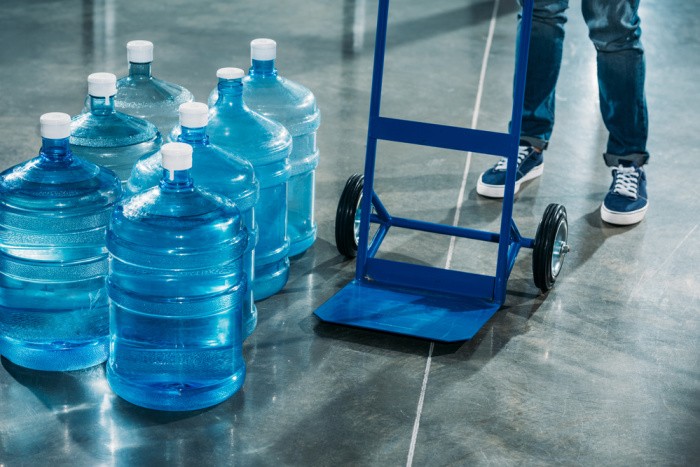
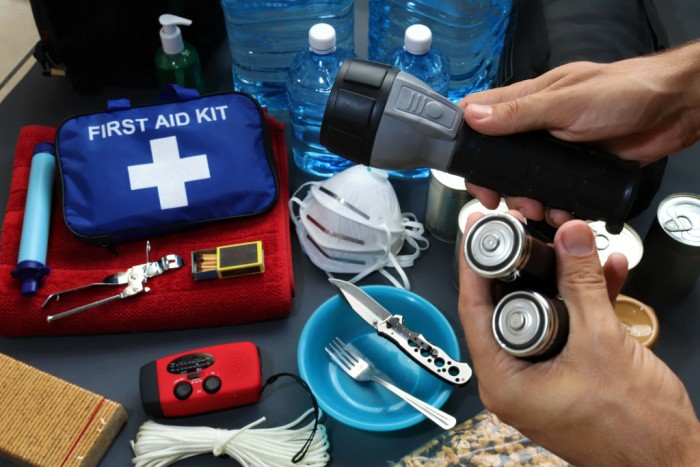


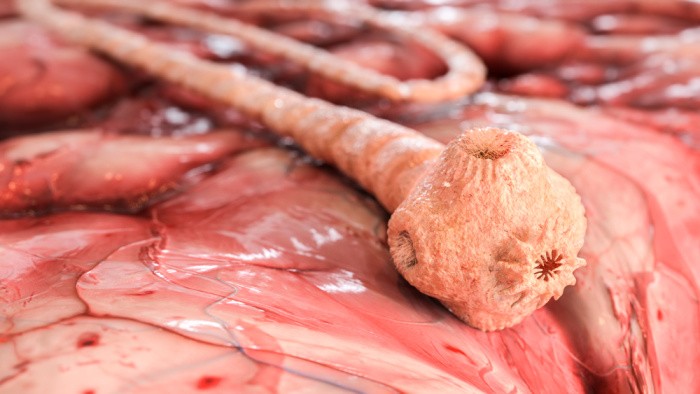
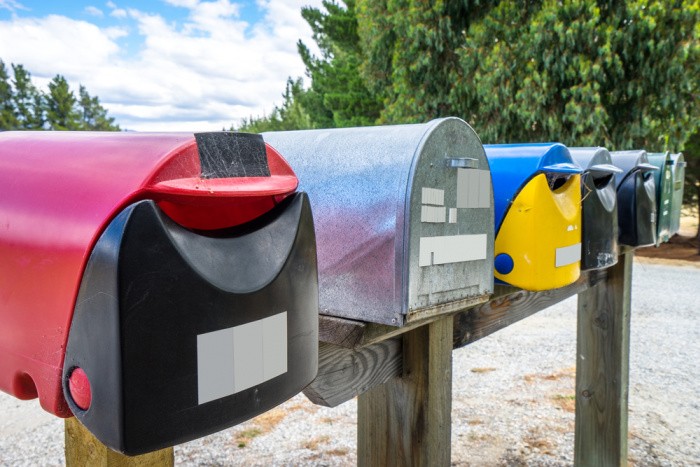













Great post! Very informative. Thank you so much for this, Linda!
Hi Deborah, I hope we never have to deal with one, but it does make us think about things like this. Happy Sunday! Linda
That is so true. Luckily, we’ve never had to face something like this.
I read your tips and articles every day and have learned a lot. This was the best article you have shared yet!
I am married to a hazmat safety guy, and read the article to him. He was really impressed! Because chemical accidents happen more often at home, than in the workplace (which is strictly regulated), he had these two suggestions:
1) when working with a chemical, thoroughly read the instructions and/or get the Safety Data Sheet (SDS) from the manufacturer BEFORE using it so that you know how to handle emergencies with that chemical. You can typically go to the manufacturer’s website and download the SDS.
2) Use all Personal Protective Equipment (PPE) recommended by the manufacturer including eye protection, compatible chemical gloves and any torso protection. A respirator may be required as well. It’s very important that you have the right respirator, the right filter, and that it makes a good face to face piece seal. The SDS will outline what PPE should be used.
Hi Andrea, thank you for your kind words. I try to research as much as I can. Please thank your husband for the two tips he added. I’m so grateful for his knowledge. That’s why we have this forum. We can teach and we can learn from each other. Thank you, Linda
Wow, I have to honestly say I have never considered a chemical emergency! My biggest “fear” has been wildfire because we’re surrounded by woods. But then, after reading this, I realized the train tracks are half a mile from us! Trains carry chemicals and if one were to derail near us we could be in a world of hurt! Just goes to show – there’s always something to be learned! Thanks for opening my eyes Linda!
Hi Beth, you live close to the train tracks and I lived down the (mini) hill from I-15, the main thoroughfare in Southern Utah. We were so close we could smell the exhaust from the trucks. IDOT would not approve a “wall” to stop the toxic fumes, let alone a chemical spill. I was always afraid of a chemical spill. Thank you for your kind words, Linda
I am in Alto, GA and my situation is just like yours…..tracks very near us and lots of trains a day go by
HI Sandra, the train tracks and highways and refineries make us all think twice about our daily environment. Linda
This threat can become complex however there are ways to keep it simple. This is not a subject to take lightly depending on where you live like next to railroad tracks etc.
For about $12-15 you can get a (hooded preferably) tyvex suit from Amazon, get the rubber kitchen gloves from dollar tree, duct tape form dollar tree for sealing seams like sleeves to gloves, a set of rubber boots for about $20-30 and then buy a respirator or gas mask that’ll be from $30-250. This will give you a military style MOPP kit.
You’ll need a “slurry solution” for decontamination of equipment. Soap, water and perhaps peroxide or bleach might be in order depending on the substance.
There is a proper way to undress and throw away contaminated items. It’s the exact opposite of what happened in covid with all the “experts” wearing a mask then wadding the contaminated mask up in their purse and pockets then putting it back on. Here is a training video.
https://youtu.be/_T0DQrT72wM
Hi Matt, wow, thanks for the tips on what to buy. I just watched the YouTube, it’s about 7 minutes long and well worth the time to watch it. I hope none of us ever have to deal with this type of situation but if we do, we are a few baby steps closer to knowing what to do. Thank you, Linda
Thanks for the info Matt! I’m on it!! Geez, why did I not think about the trains??!!
Because we are conditioned to think we are safe from children and reassured daily by the media and politicians. Those who look for threats are labeled paranoid, conspiracy theorists, fringe, crazy and you become the crazy uncle no one really wants at thanksgiving dinner.
Seriously though we can never think of every threat to mitigate because it would become maddening.
The whole purpose of Linda’s posts in my belief are to simply get the grey matter moving in a direction that will benefit should something go wrong.
Ya do the best ya can with what ya got. Duct tape, Dawn dish soap and a shower curtain might be it.
Now you’ve thought of your particular situation and that’s awesome IMO.
Hi Matt, great comment as always my friend. You know I got the giggles over the crazy uncle at the Thanksgiving dinner! I think I’m the crazy aunt at the table! LOL! We all do what we can and think ahead of the game. Linda
Thanks for your encouragement Matt. I AM the crazy prepper as far as my family is concerned- ask me if I care! LOL.
You see the Ohio train crash going on and what’s happening?
HI Matt, I saw that and they are still worried about the air quality and water contamination! Linda
Hi Linda! Great post! My mini(fortunately) chemical emergency happened years ago when I was pruning my houseplants. Apparently Chinese Evergreen is very toxic. It spit sap when I cut a leaf off and landed right in my eye. I wore contact lenses and took that one off immediately, rinsed with saline and called poison control. The person I spoke with said if I had not had the lens on, I might have lost my sight. Be careful out there and God bless you!
Hi Jan, oh my gosh, that was scary!!! Thank goodness you have had contact lenses in. Glad you’re okay! Linda
This is one of my worries and the main reason why I think we need a go bag packed. Far too frequently there are local news reports of train derailments with chemical spills. So far the train derailments are in rural areas and far too often they are created by a train hitting a car trying to get across the tracks before the train gets there. We are in a suburban area with railroad tracks very close and also railroad crossing. It worries me since if something happens, we will be in the evacuation area. We don’t have the personal protection (thanks Matt for listing what is needed) and I’ll need to add that to our supplies.
Hi Topaz, I agree with you, you must always be ready to evacuate no matter where you live. This is why I write what I do and remind people to keep their vehicles filled with gas and supplies. We need to be able to drive without having to stop at a gas station that is lined up with cars because they didn’t fill their gas tanks the day before. You can do this, yes you can. Linda
We all “think” that the cleaning products sold in stores are safe. They are not necessarily safe for everyone! Case in point: I purchased a product that was advertised to really clean calcium deposits and lime build up from tubs and showers. I read the instructions, turned on the fan as well as opened the window in the bathroom. I then liberally sprayed the shower with this poisonous chemical. Before I could get out of the room, I started having breathing problems. It took me several hours before I felt like I could breathe well again. My husband went into the bathroom and cleaned the shower. He did not have any issues with the toxins.
To this day, I cannot and will not use manufactured cleaning products. If water or water and vinegar, don’t do the job, the job will not be done! I also cannot use manufactured hand sanitizer as I found out during COVID-19. I developed a terrible rash from all the hand washing and sanitizing! I still have some skin issues that are healing from the rash(es) caused by soap and sanitizer.
Hi Leanne, wow, that would be scary for sure. I use a pumice bar with liquid soap to remove calcium deposits. Of course, afterward, my fingers are bleeding from the cracks. I know some hand sanitizers almost smell like a hint of gasoline. I know it’s not but I am very fussy as to which ones I will buy as well. That’s terrible that you developed rashes and skin issues using some of the products. Yikes, glad you learned what not to buy. Linda
I never had a chemical burn unless you consider having boiling oil fall onto the top of your chest and below a few items. (I think you know what I am talking about Linda). I walked about 1/4 of a mile to the base hospital and boy did it hurt. Taught me a lesson though don’t pick up a pan with boiling oil in it.
Hi Jackie, yikes that is terrible, you poor thing. And then you had to walk 1/4 mile, oh my gosh, I’m so sorry you had to do that!! Oil in a pan is scary, actually! Linda
I appreciate this topic. While I have been concerned about the Niagara Power Vista which is about 25 miles away, I haven’t given chemicals much of a thought. I should have, because Love Canal and all the illness and death that came with it, is only 15 miles away. Chemicals are serious business.
Hi Chris, thank you for your kind words, my friend. Sometimes we go about our daily lives and we may see a disaster of sorts whether it be chemicals or dangerous gasses, etc. on the news. I’m sure you’ve seen the news with cars lined up bumper to bumper waiting for gas or on the highway after an unforeseen emergency. If our gas tank is full enough we can evacuate if need be. Chemicals are serious business. Linda
I got a hazmat kit plus training on how to use it when I had ‘extreme chemo’ some years ago. Um, I had a pump attached to my port with a wine box size bag of chemo, lol, plus a baby bottle of a different chemo; this contraption was worn around my waist and stuff was dripped in from mon-fri. I didn’t realize this was quite unusual until I got Educated on what I’d need to do If I got a leak, my bag tore, whatever. Like, my whole family would have been in danger. Hey, nothing happened in the 9 mos I did this and I still have this hermetically sealed box of what to use. Lol, I still SMH at the thought of me cleaning up chemo waste while I was the one sick from it. I sure did learn a lot tho about chemical spills. Gave me a lot of respect for my infusion techs, who smile and laugh while dealing with these chemicals all day.
The chemo they made and used on me, as the first patient they thought could tolerate it , has been modified, and has saved many lives. I was the first survivor of this duo cancer, thanks to this chemo. Lol, and I still have this Space Suit Kit.
Hi Wendy, wow, what an ordeal you had to go through my sweet friend!! If anyone knows about chemicals and hazmat suits, it’s YOU! Congrats on leading the way for other patients!! Thank you!! Linda